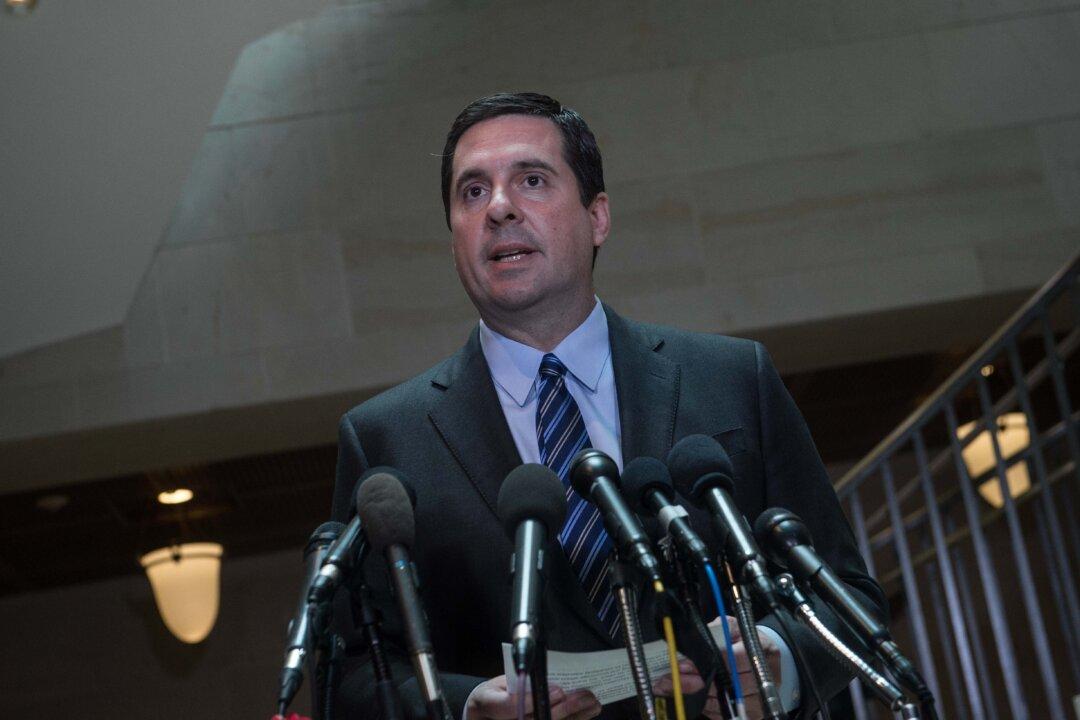The FBI started investigating the Trump campaign’s alleged collusion with Russia without any official intelligence to justify it, according to House intelligence committee chairman Devin Nunes.
Nunes said on Sunday that his committee has reviewed electronic communications that passed through the Five Eyes intelligence agencies to the U.S. government and found nothing that could be used to start an investigation. The Five Eyes is an intelligence-sharing agreement between the United States, Canada, UK, Australia, and New Zealand.





